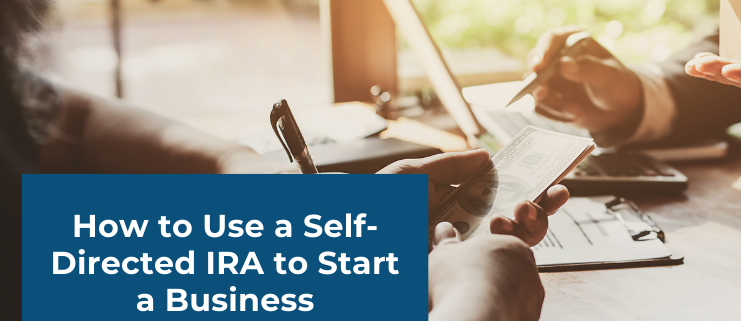How to Use a Self-Directed IRA to Start a Business
A business. A retirement account. For too many investors, the two are like oil and water—never to be mixed. But anyone who knows about Self-Directed IRAs knows it doesn’t have to be like that. You can use a Self-Directed IRA for private business holdings as long as you follow the IRS’s rules. All you have to do? Venture off the beaten path of traditional brokers who only offer you stocks and funds as part of their retirement offerings. You can use a Self-Directed IRA to start a business, but it also helps to know how—and what kinds of benefits you can get from it. If you’re interested in keeping a business within your retirement account, let’s dive in.
Why a Self-Directed IRA to Start a Business?
One of the key reasons is simple: Self-Directed IRAs offer more freedom than you might imagine. The traditional approach to IRAs is to use them for stocks, bonds, and mutual funds. But with a Self-Directed IRA, you can easily access alternative investments including private businesses. All you have to do is work with a Self-Directed IRA administration firm who can handle the paperwork. From there, you’ll have the power to direct your retirement savings into something you’re more passionate about, or that you have expertise in. All the while, an investment like a private business can stay under your IRA umbrella, enjoying the tax advantages that come with retirement protections.
Diversification and Control: The Keys to Self-Directed IRAs
Another benefit of using a Self-Directed IRA for business ventures is diversification. Instead of relying solely on the stock market’s ups and downs, you’re able to hedge your bets by investing in private companies. This added control lets you actively manage and grow your retirement portfolio through your business, which can be particularly rewarding for entrepreneurs.
There are generally two ways you can start a business within a Self-Directed IRA. You can purchase a business with the IRA’s funds, or you can start the business after the IRA is set up. Many investors use a Single Member LLC business structure to give themselves “checkbook control,” since the IRA holds the business that holds the checkbook. This gives you the ability to make investments within the business while enjoying the benefits of an IRA.
What to Watch Out For: The Rules
Starting a business with a Self-Directed IRA isn’t without its challenges. The IRS prohibits certain transactions, including “self-dealing” and “prohibited transactions. In other words, you can’t personally benefit from the business outside of your IRA. For example, you can’t draw a salary or provide goods or services to the company. And if you don’t follow these rules? You risk disqualification of your IRA, which could result in severe tax penalties.
It’s also crucial to ensure you don’t involve disqualified persons, such as family members or close business associates, in the operation of the IRA-owned business. This could lead to the IRA’s tax-advantaged status being revoked.
The Bottom Line on Businesses in Self-Directed IRAs
Using a Self-Directed IRA to start a business offers incredible opportunities for entrepreneurs looking to grow their retirement savings in non-traditional ways. With the potential for tax-deferred growth and diversification beyond the stock market, it’s a great option if you understand and follow the IRS’s rules. With careful planning and the right guidance, your business can thrive within the framework of your retirement account, offering you both control and financial growth on your terms.
Ready to learn more about how to use a Self-Directed IRA to start a business? Now’s the time to reach out. Give us a ring here at 866-7500-IRA.



